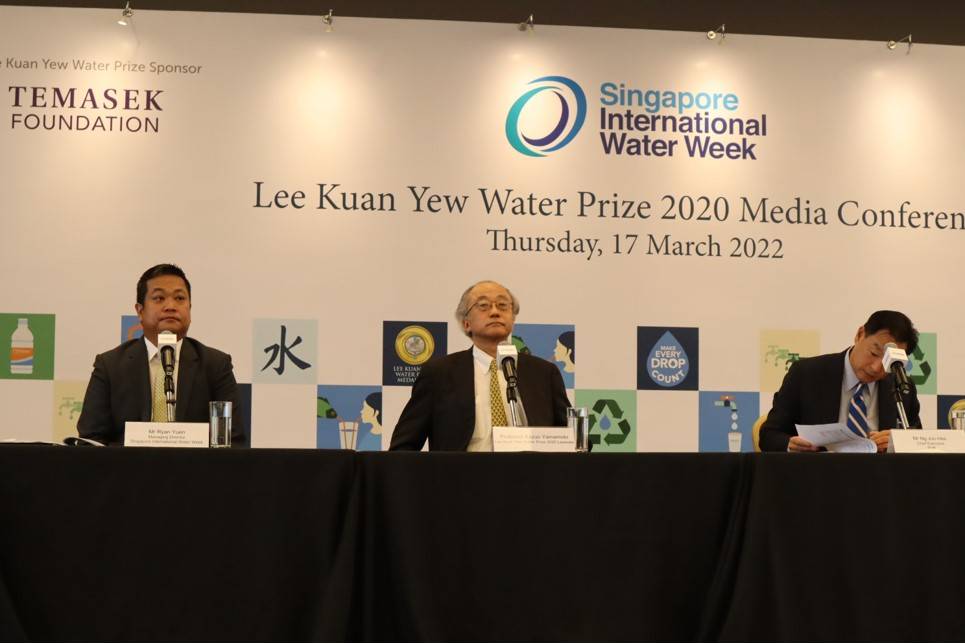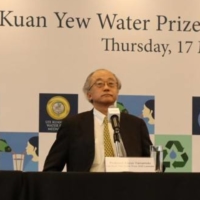Singapore on Thursday named a Japanese scientist as the recipient of the Lee Kuan Yew Water Prize for inventing an efficient wastewater treatment technology that has helped the city-state recycle its scarce water resources.
Kazuo Yamamoto, a 67-year-old professor emeritus at the University of Tokyo, was recognized for developing the so-called submerged membrane bioreactor in the late 1980s that was viewed as a major breakthrough in the field of wastewater treatment.
At an award announcement event in Singapore, Ng Joo Hee, head of the national water agency, said the technology helped boost the city-state's production of recycled water.
Yamamoto is the first Asian to win the prize, which is named after Singapore's first prime minister, Lee Kuan Yew. The award and 300,000 Singapore dollars (about ¥26 million) in prize money will be presented to him April 18.
The use of membranes for the treatment of wastewater had existed before Yamamoto came up with his prototype, but earlier versions could not be implemented on a large scale because they consumed a huge amount of energy and the membranes also fouled easily.
"I was born in Tokyo and at that time the water pollution was very serious in Japan. That's why I decided to choose my major in wastewater engineering, so solving environmental problems is a key issue for me," Yamamoto said at Thursday's event.
Singapore is expanding the use of Yamamoto's technology at its used-water treatment facilities to cover just over half of its treatment capacity when a new water reclamation plant is completed in 2026.
According to the water agency, Singapore likes Yamamoto's technology because it takes up less space than conventional systems and also consumes much less energy.




